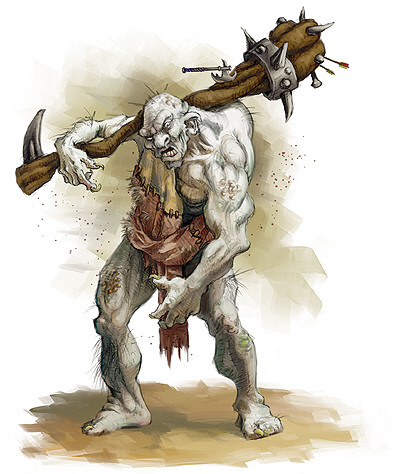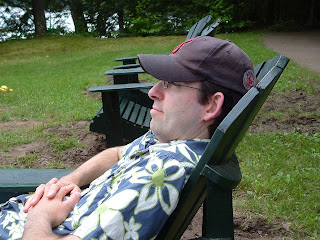My four year old daughter loves playing board games. Actually, she'll play pretty much any kind of game you put in front of her: video games, bowling, badminton, board games, card games, and any kind of made up game she can conjure up. In fact, she often insists on playing Caylus, Settlers, Carcassonne, or whatever adult game she happens to see on the shelf. I don't blame her, all those games that we never play together must be awfully good, right? I do break out Carcassonne with her on occasion since she gets the matching terrain aspect, although not so much the meeple placement/scoring aspect.
Personally I like board and card games the best, so that's what I try to steer her towards when she wants to play a game. There are numerous games we own that the Girl (this sounds odd, but somehow having one boy and one girl leads the Mrs. & I to refer to them by their sex on occasion rather than by name) likes playing that I don't care for. These tend to be the basic draw a card and move (Candyland), or spin and move (Chutes & Ladders), or even flip over one card after another (War). None of these games have decision making aspects and thus I will not place them on the list despite the fact that the Girl does enjoy them. Since this is a list of games we enjoy together, I suppose I'm allowed to nix those games that I don't enjoy. Not that playing a dull game with her is altogether bad: I still enjoy playing those games on occasion since it is a shared activity with my daughter. I have fun not because the game is good but rather despite the fact that it is bad. I suppose what I'm trying to say is that the list is games that we both enjoy playing frequently. We have fun with everything on this list, and it's in no particular order:
 I Spy Bingo (2-6 players, age 4+) Each bingo card consists of a 4x4 grid, each box in the grid containing about ten pictures, each beginning with the same letter of the alphabet. The player whose turn it is flips over the top card of a deck to reveal four random pictures. She then calls out one of the pictures on the card and places a bingo token over the box on her card that contains that picture (if there is one). Sometimes its easy to find a given picture on your card since it is grouped by first letter. However, much more often the 'I Spy' aspect of the game comes into play because it is not immediately obvious which letter the picture starts with. For instance, what appears to be a snake may actually be under 'V' for viper. Also the green apple isn't under 'A,' it's under 'G' (either for Green or for Granny Smith...I guess both work!) A simple little game but it always seems to be a fun time for us.
I Spy Bingo (2-6 players, age 4+) Each bingo card consists of a 4x4 grid, each box in the grid containing about ten pictures, each beginning with the same letter of the alphabet. The player whose turn it is flips over the top card of a deck to reveal four random pictures. She then calls out one of the pictures on the card and places a bingo token over the box on her card that contains that picture (if there is one). Sometimes its easy to find a given picture on your card since it is grouped by first letter. However, much more often the 'I Spy' aspect of the game comes into play because it is not immediately obvious which letter the picture starts with. For instance, what appears to be a snake may actually be under 'V' for viper. Also the green apple isn't under 'A,' it's under 'G' (either for Green or for Granny Smith...I guess both work!) A simple little game but it always seems to be a fun time for us.  Memory (essentially any number of players, age 3+) The old standby. We actually have three separate copies of this game: original, Finding Nemo, and one with pictures painted on wooden blocks rather than cardboard cutouts. The Girl loves this game, which makes it fun. The remarkable thing is that young children seem to be on a fairly level playing field with adults at this one. I think I win slightly more often than she does, but I never throw games with her and she certainly wins her fair share.
Memory (essentially any number of players, age 3+) The old standby. We actually have three separate copies of this game: original, Finding Nemo, and one with pictures painted on wooden blocks rather than cardboard cutouts. The Girl loves this game, which makes it fun. The remarkable thing is that young children seem to be on a fairly level playing field with adults at this one. I think I win slightly more often than she does, but I never throw games with her and she certainly wins her fair share.  Flea Circus (2-6 players, age 6+) This is the most recent addition to our kids' board game collection. Designed by Reiner Knizia, this is a card game that the Girl fully grasps and enjoys despite the higher age suggestion. The game consists of a deck of cards, a pile of blue dog pieces, and a pile of white cat pieces. The basis of the game is that the players each run their own flea circus and they are vying for the attention of a common pool of spectators. Spectators come in two denominations: cats are worth one spectator, dogs are worth two, and they are fully interchangeable. If you play a card that nets you four spectators you may claim any combination of animals that adds up to four. This was the Girl's first experience counting by twos and she loved the challenge of counting to three or four using both ones and twos instead of just ones. It may be difficult for some young children to grasp that 'one' dog is actually 'two' spectators. Each player maintains a hand of five cards, drawing back up to that number at the end of each turn. Each player has a pile of their previously played cards in front of them called the 'show stack.' Each flea card has a different effect when played (some take spectators from the common pool, others steal them from opponents, some can be played in multiples, some have varying values depending on what is on top of other players' show stacks. Flea Circus gives young children lots to consider since individual card values greatly vary depending on what other cards are in their hand and which cards are showing on the table. You should listen to the Girl trying to explain this game to people when we sit down to show it to new players. Her excitement about the game is amazing, but she probably comes off a lot like I would if I were to try to explain Puerto Rico to my grandmother. One last note about Flea Circus: although the game is way over my two year old's head, it is quite easy to keep him entertained by the very fun rubber cats & dogs. This is a good thing! Highly recommended.
Flea Circus (2-6 players, age 6+) This is the most recent addition to our kids' board game collection. Designed by Reiner Knizia, this is a card game that the Girl fully grasps and enjoys despite the higher age suggestion. The game consists of a deck of cards, a pile of blue dog pieces, and a pile of white cat pieces. The basis of the game is that the players each run their own flea circus and they are vying for the attention of a common pool of spectators. Spectators come in two denominations: cats are worth one spectator, dogs are worth two, and they are fully interchangeable. If you play a card that nets you four spectators you may claim any combination of animals that adds up to four. This was the Girl's first experience counting by twos and she loved the challenge of counting to three or four using both ones and twos instead of just ones. It may be difficult for some young children to grasp that 'one' dog is actually 'two' spectators. Each player maintains a hand of five cards, drawing back up to that number at the end of each turn. Each player has a pile of their previously played cards in front of them called the 'show stack.' Each flea card has a different effect when played (some take spectators from the common pool, others steal them from opponents, some can be played in multiples, some have varying values depending on what is on top of other players' show stacks. Flea Circus gives young children lots to consider since individual card values greatly vary depending on what other cards are in their hand and which cards are showing on the table. You should listen to the Girl trying to explain this game to people when we sit down to show it to new players. Her excitement about the game is amazing, but she probably comes off a lot like I would if I were to try to explain Puerto Rico to my grandmother. One last note about Flea Circus: although the game is way over my two year old's head, it is quite easy to keep him entertained by the very fun rubber cats & dogs. This is a good thing! Highly recommended.
 Junior Labyrinth (2-4 players, age 5+) This is essentially identical to the adult version of the game except instead of the board being a 7x7 maze it is 5x5 and there are fewer treasures to find within its twists and turns. Players are dealt treasure pieces face down that they are to seek during the game by moving their ghost character through the maze. Most of the maze tiles on the board can be moved, which is accomplished by pushing the one extra maze tile against one row of tiles on the board and pushing a tile out the other side. This changes the layout of the board slightly, opening up some corridors that were closed off and closing off others that were open. Each turn a player moves one row of the labyrinth, then moves his ghost along the tunnel either to the current treasure she is seeking or as close to it as possible in order to set up a future move to actually acquire it. The Girl and I enjoy this game but she does have difficulty visualizing how any given maze shift will effect the layout of the board. Usually I let her push a maze piece and see how that changes the labyrinth, then push it back and try another spot if it doesn't help her towards her goal. The winner is the first to find all of their treasures then return to their starting space. Not as much fun as some other games on this list, but not bad.
Junior Labyrinth (2-4 players, age 5+) This is essentially identical to the adult version of the game except instead of the board being a 7x7 maze it is 5x5 and there are fewer treasures to find within its twists and turns. Players are dealt treasure pieces face down that they are to seek during the game by moving their ghost character through the maze. Most of the maze tiles on the board can be moved, which is accomplished by pushing the one extra maze tile against one row of tiles on the board and pushing a tile out the other side. This changes the layout of the board slightly, opening up some corridors that were closed off and closing off others that were open. Each turn a player moves one row of the labyrinth, then moves his ghost along the tunnel either to the current treasure she is seeking or as close to it as possible in order to set up a future move to actually acquire it. The Girl and I enjoy this game but she does have difficulty visualizing how any given maze shift will effect the layout of the board. Usually I let her push a maze piece and see how that changes the labyrinth, then push it back and try another spot if it doesn't help her towards her goal. The winner is the first to find all of their treasures then return to their starting space. Not as much fun as some other games on this list, but not bad.
 Mancala This is a classic game that I've owned for years but just never thought to play with the Girl until recently. I learned the game from my aunt when I was a child and used to enjoy it then as I do now. Players move stones on their side of the board and try to get as many as possible in their 'bank' at their end of the board. By choosing the best pile of stones to move and landing the final stone of the sequence in your bank you earn another consecutive move and thus can rack up a high score through thoughtful and precise decisions. After a few plays the Girl really started to grasp the strategy and she now loves this game. You can't go wrong with Mancala.
Mancala This is a classic game that I've owned for years but just never thought to play with the Girl until recently. I learned the game from my aunt when I was a child and used to enjoy it then as I do now. Players move stones on their side of the board and try to get as many as possible in their 'bank' at their end of the board. By choosing the best pile of stones to move and landing the final stone of the sequence in your bank you earn another consecutive move and thus can rack up a high score through thoughtful and precise decisions. After a few plays the Girl really started to grasp the strategy and she now loves this game. You can't go wrong with Mancala.
 Zingo (2-8 players, age 4+) We've had this game for quite a while and had a lot of fun with it. Zingo is really quite straightforward, it's simply bingo with a little red tower that shoots out two bingo tiles at a time. The tiles each depict one picture and the picture's name written beneath it. Each bingo board has nine different pictures on it arranged 3x3. As two new tiles are revealed a player will call out 'I need a house!' if they see a house tile that matches their board. Depending on how you play, either the first person to call a tile or the first person to grab it gets to place the new tile on his board. The first player to fill their entire board is declared the winner! Usually we have the first winner, then we keep playing to determine the second winner, then the third, etc. The Girl likes this game a lot but for the most part has moved on to other games we've been playing more recently. The Boy actually understands Zingo very well and usually plays with us too, and he is only two years old. Definitely a good game for a family with young children.
Zingo (2-8 players, age 4+) We've had this game for quite a while and had a lot of fun with it. Zingo is really quite straightforward, it's simply bingo with a little red tower that shoots out two bingo tiles at a time. The tiles each depict one picture and the picture's name written beneath it. Each bingo board has nine different pictures on it arranged 3x3. As two new tiles are revealed a player will call out 'I need a house!' if they see a house tile that matches their board. Depending on how you play, either the first person to call a tile or the first person to grab it gets to place the new tile on his board. The first player to fill their entire board is declared the winner! Usually we have the first winner, then we keep playing to determine the second winner, then the third, etc. The Girl likes this game a lot but for the most part has moved on to other games we've been playing more recently. The Boy actually understands Zingo very well and usually plays with us too, and he is only two years old. Definitely a good game for a family with young children.
 Guess Who? (2 players, age 6+) This is a game I remember from my childhood, although I don't think I was crazy about it: Guess Who? was more of a novelty to me, but the Girl really enjoys it. It is a very simple game but is short, entertaining, and functions very differently than other games in our collection so it is a good change of pace. Yet another game listed at 6+ that the Girl has no problems with whatsoever. Some of the conceptual subtleties took her a few plays to figure out (such as asking about characters' having 'facial hair' rather than just 'a beard'), but she enjoys the game and is great at it as well. A word of caution, however: the plastic framework of the boards are very breakable and you should probably not allow your two year old to play with them. Yes, I'm speaking from experience here. Overall a fun little game to play with your child, or for two kids to easily play together.
Guess Who? (2 players, age 6+) This is a game I remember from my childhood, although I don't think I was crazy about it: Guess Who? was more of a novelty to me, but the Girl really enjoys it. It is a very simple game but is short, entertaining, and functions very differently than other games in our collection so it is a good change of pace. Yet another game listed at 6+ that the Girl has no problems with whatsoever. Some of the conceptual subtleties took her a few plays to figure out (such as asking about characters' having 'facial hair' rather than just 'a beard'), but she enjoys the game and is great at it as well. A word of caution, however: the plastic framework of the boards are very breakable and you should probably not allow your two year old to play with them. Yes, I'm speaking from experience here. Overall a fun little game to play with your child, or for two kids to easily play together.
 Dominoes Another game that I've had for a long time but just never thought to give it a try with the Girl. Not too much to be said here besides the fact she enjoys it. We really haven't tried playing any complicated games yet, just the basic matching your piece to those already on the table and trying to run out your dominoes.
Dominoes Another game that I've had for a long time but just never thought to give it a try with the Girl. Not too much to be said here besides the fact she enjoys it. We really haven't tried playing any complicated games yet, just the basic matching your piece to those already on the table and trying to run out your dominoes. Blink (2 players, age 7+) It is quite surprising to me that the listed age on this game is so high, since the Girl has no problem with it and has considered it her favorite game for a while. Blink is comprised of a deck of cards with symbols on the face that vary along three different characteristics: color, shape, and number. Each player is given a draw pile of half the cards, then draws three cards for her hand and flips over one additional card onto the playing surface. Players then try to play the cards in their hand by matching them by any of the three characteristics to the two cards already face up on the table. New cards are drawn for each one played and the first player to play all of their cards is declared the winner. Blink bills itself as the world's fastest game, usually played within two minutes. Conceptually there is nothing here that a four or five year can't grasp, you simply have to adjust how many cards each player is given in their draw pile to compensate for ability. For instance, I might give the Girl 1/3 of the deck while I take the remainder. Thus even though I'm much quicker at the game we should still finish at close to the same time and have an enjoyable and competitive game. Blink is great fun for all ages and I'd think would make a good learning tool for preschoolers or kindergartners.
Blink (2 players, age 7+) It is quite surprising to me that the listed age on this game is so high, since the Girl has no problem with it and has considered it her favorite game for a while. Blink is comprised of a deck of cards with symbols on the face that vary along three different characteristics: color, shape, and number. Each player is given a draw pile of half the cards, then draws three cards for her hand and flips over one additional card onto the playing surface. Players then try to play the cards in their hand by matching them by any of the three characteristics to the two cards already face up on the table. New cards are drawn for each one played and the first player to play all of their cards is declared the winner. Blink bills itself as the world's fastest game, usually played within two minutes. Conceptually there is nothing here that a four or five year can't grasp, you simply have to adjust how many cards each player is given in their draw pile to compensate for ability. For instance, I might give the Girl 1/3 of the deck while I take the remainder. Thus even though I'm much quicker at the game we should still finish at close to the same time and have an enjoyable and competitive game. Blink is great fun for all ages and I'd think would make a good learning tool for preschoolers or kindergartners.
Just a few ideas that have worked for me and my daughter. It really is never too early to get kids started on board games!

 I am
I am  So now I've leaped into board game 'maximization mode.' I need to figure out exactly how to spend my limited resources (time & money) on activities in Ottawa to maximize our total benefit over the weekend (turn)! Of course the Mrs. would say that this is best put in economic terms, being an economist and all, but not for me! In my mind I've got a massive handful of resource cards and I'm trying to figure out exactly what I need to exchange and then build to get those last two victory points and win this one for the good guys! Is this guy for real? You bet I am! Now where was I?
So now I've leaped into board game 'maximization mode.' I need to figure out exactly how to spend my limited resources (time & money) on activities in Ottawa to maximize our total benefit over the weekend (turn)! Of course the Mrs. would say that this is best put in economic terms, being an economist and all, but not for me! In my mind I've got a massive handful of resource cards and I'm trying to figure out exactly what I need to exchange and then build to get those last two victory points and win this one for the good guys! Is this guy for real? You bet I am! Now where was I? Right, Ottawa! Now first things first: I need to define the basic parameters of our trip. My mom has graciously offered to watch the kids for the weekend. (Thanks mom!) She should be arriving on the Friday of our excursion at about noon. Half an hour to get the kids settled, two hours on the road, half an hour to get checked into the hotel and we're off to see the city by 3:00
Right, Ottawa! Now first things first: I need to define the basic parameters of our trip. My mom has graciously offered to watch the kids for the weekend. (Thanks mom!) She should be arriving on the Friday of our excursion at about noon. Half an hour to get the kids settled, two hours on the road, half an hour to get checked into the hotel and we're off to see the city by 3:00 Friday 2:30pm Check into Inn on Somerset, the B&B where we decided to spend our night. It seemed to be the best combination of location and price.
Friday 2:30pm Check into Inn on Somerset, the B&B where we decided to spend our night. It seemed to be the best combination of location and price.











